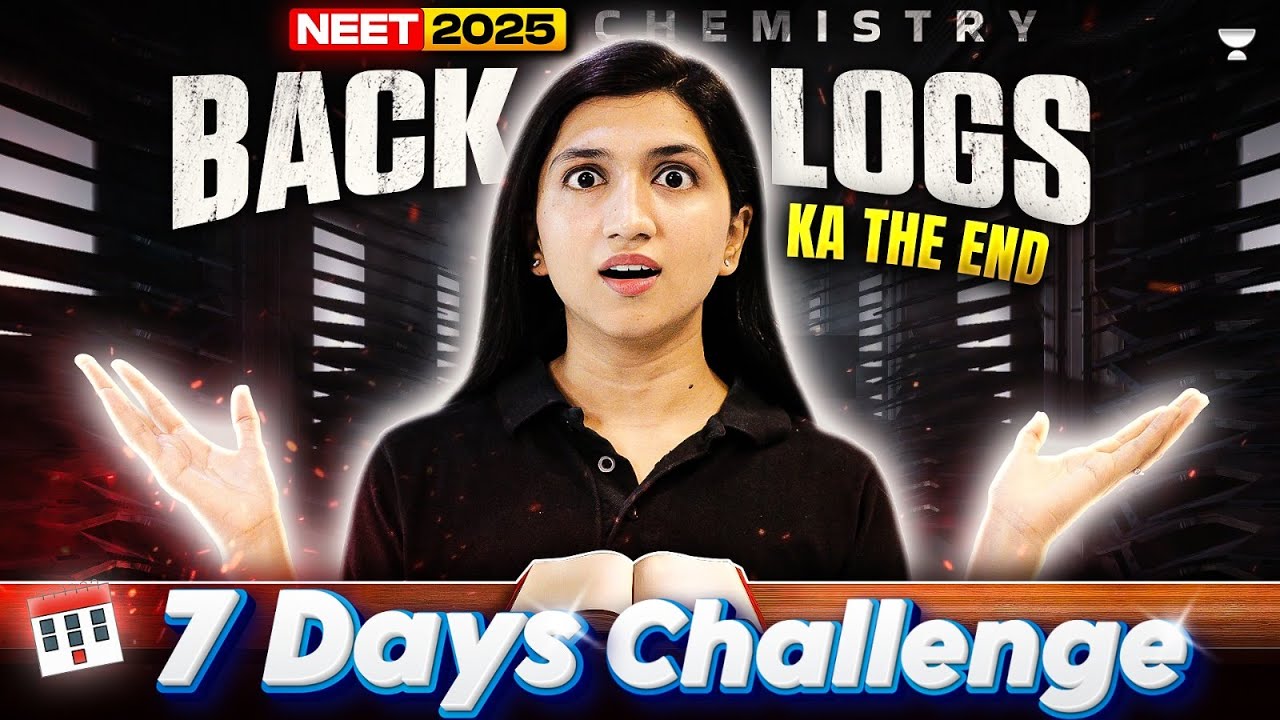Half Yearly Exams STRATEGY to Score 95% 🔥 7 Days Masterplan
Summary
TLDRThis video offers practical strategies for students preparing for exams just seven days away. It introduces three powerful study hacks: testing yourself instead of re-reading, using elaborative rehearsal to connect new information with prior knowledge, and focusing on weak areas by revisiting basics. The video also guides viewers in creating a personalized timetable based on energy levels, highlighting high-productivity morning and evening sessions, low-energy breaks, and proper sleep. With tips on focus exercises, short revision videos, and regular self-testing, the video equips students to maximize retention, boost confidence, and achieve better exam performance efficiently in a limited timeframe.
Takeaways
- 😀 Repeatedly testing yourself is more effective for exam performance than rereading the material multiple times.
- 😀 Confidence from rereading doesn’t necessarily translate into higher marks; active retrieval is key.
- 😀 CBSE’s open-book exams and competency-based questions require deeper understanding, not rote memorization.
- 😀 Elaborative rehearsal helps connect new information with existing knowledge, improving long-term retention.
- 😀 Linking concepts to real-life examples enhances understanding and prepares you for in-depth questions.
- 😀 Identifying weak areas and revisiting the basics helps overcome fear or hesitation in difficult subjects.
- 😀 A well-planned timetable should align study sessions with your natural energy levels throughout the day.
- 😀 Morning is generally the highest-energy period, ideal for focused and intensive study sessions.
- 😀 Breaks and low-energy periods should be used for relaxation or non-productive activities to recharge effectively.
- 😀 Short revision videos followed by self-testing can optimize retention and improve exam performance.
- 😀 One-hour or two-hour focused study sessions with proper breaks are more productive than long, unfocused sessions.
- 😀 Customizing your energy graph and study plan based on personal schedule ensures maximum efficiency and productivity.
Q & A
What is the main focus of the video script?
-The main focus is on strategies for studying effectively during the seven days leading up to exams, including study hacks and designing a productive timetable.
According to the research mentioned, which study method resulted in the highest exam marks?
-Students who read the text only once but tested themselves three times scored the highest. This highlights that active self-testing is more effective than repeated reading.
What is elaborative rehearsal and how does it help in studying?
-Elaborative rehearsal is the process of connecting new information to what you already know, forming strong mental links. This helps retain knowledge better and answer in-depth or competency-based questions.
Why is it important to identify weak areas before exams?
-Identifying weak areas helps students focus on topics they find difficult, revisit the basics, and build confidence, ensuring they are prepared for all types of questions.
What is the purpose of creating an energy graph in the study plan?
-An energy graph helps track personal energy levels throughout the day, allowing students to schedule high-focus study sessions during peak energy periods and low-energy periods for breaks or light activities.
What is 'focus warming' and how can it improve concentration?
-Focus warming is a simple exercise where you stare at a candle flame for one minute without blinking. It helps sharpen concentration and signals the mind to focus effectively during study sessions.
How should study sessions be adapted for school days versus weekends?
-On school days, morning study sessions may be shifted to the evening or night if mornings are unavailable. On weekends, longer morning study sessions can be utilized, taking advantage of higher energy levels.
Why are short videos and self-testing emphasized in the study strategy?
-Short videos help quickly revise concepts, and self-testing reinforces learning and improves memory retention, ensuring better performance in exams.
What should students do during low-energy periods according to the timetable strategy?
-During low-energy periods, students should take breaks, engage in non-productive activities like scrolling their phone, or do light revision. This allows them to recharge for the next high-focus session.
How does the strategy address competency-based or in-depth questions in exams?
-The strategy emphasizes elaborative rehearsal and understanding core concepts deeply, so students can connect knowledge, think critically, and answer competency-based questions effectively.
Why should students avoid just rereading material during the last seven days before exams?
-Rereading increases confidence but does not significantly improve exam marks. Active testing and connecting knowledge are more effective for long-term retention and performance.
Outlines

Этот раздел доступен только подписчикам платных тарифов. Пожалуйста, перейдите на платный тариф для доступа.
Перейти на платный тарифMindmap

Этот раздел доступен только подписчикам платных тарифов. Пожалуйста, перейдите на платный тариф для доступа.
Перейти на платный тарифKeywords

Этот раздел доступен только подписчикам платных тарифов. Пожалуйста, перейдите на платный тариф для доступа.
Перейти на платный тарифHighlights

Этот раздел доступен только подписчикам платных тарифов. Пожалуйста, перейдите на платный тариф для доступа.
Перейти на платный тарифTranscripts

Этот раздел доступен только подписчикам платных тарифов. Пожалуйста, перейдите на платный тариф для доступа.
Перейти на платный тарифПосмотреть больше похожих видео

JEE 2025 | 3 Month Roadmap For 99%ile by JEE 2024 Ranker

CFA Exam: Study Tips for L1 & L2 @ZellEducation

11 December से ऐसे पढ़ो To SCORE 90%🔥 | Class 12 | Board Exam

7 Days Mein Backlogs Ka The End! Ready for the Challenge? | NEET Chemistry 2025 | Akansha Karnwal

How I Study For Physics Exams

Still Scoring Very Low In IBPS PO/SBI PO Pre Mocks ??? How To Increase Your Marks
5.0 / 5 (0 votes)
